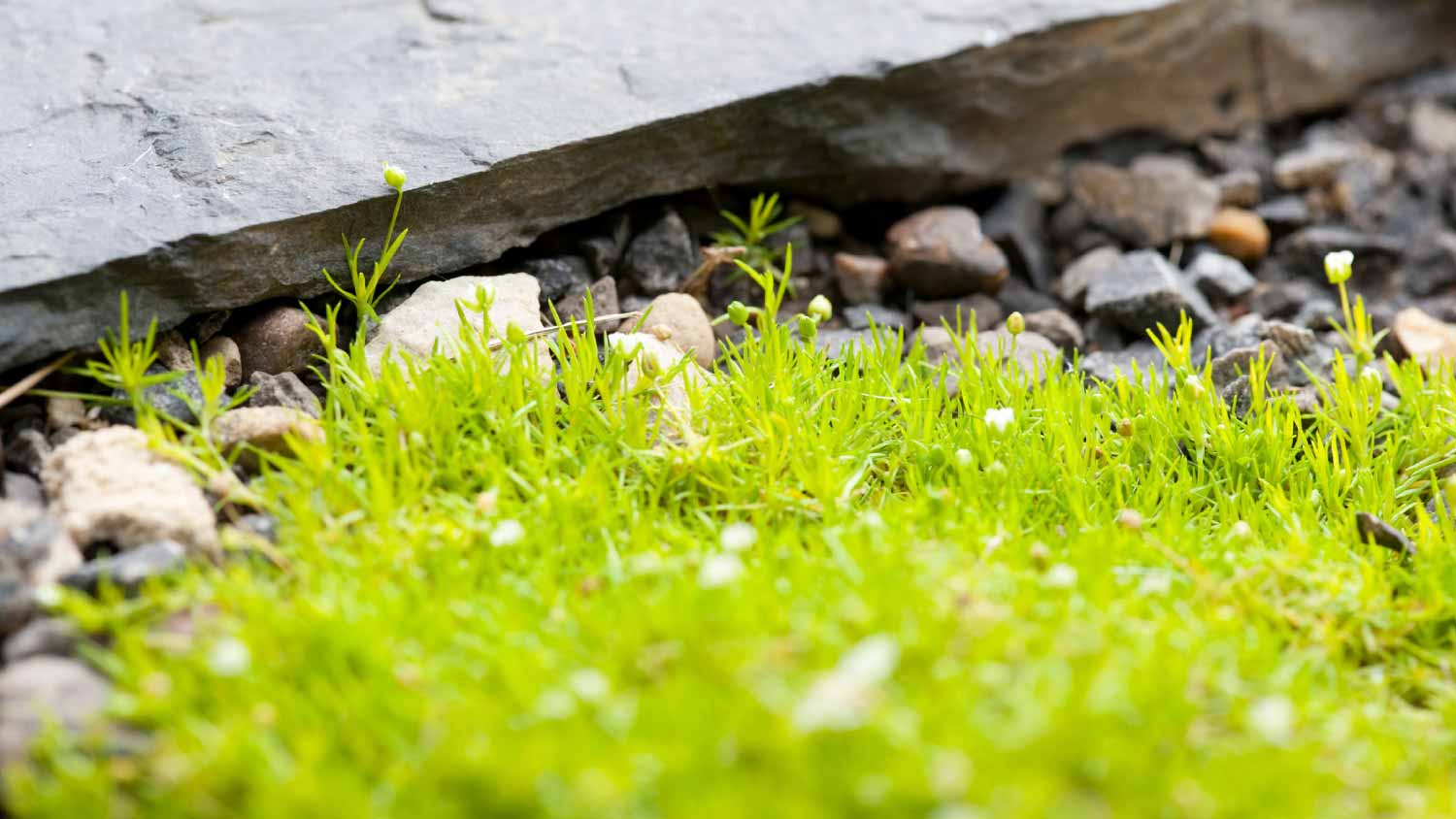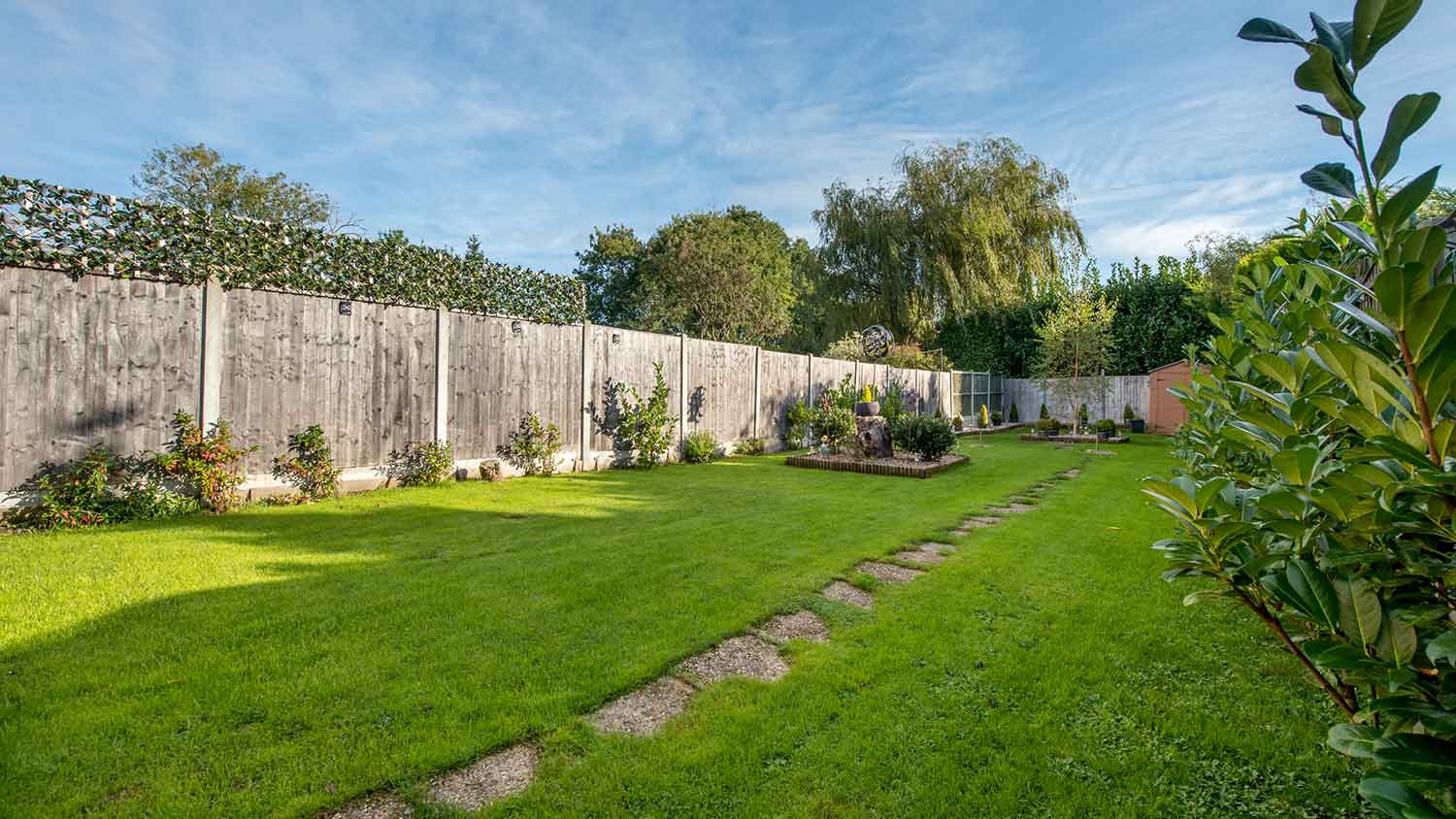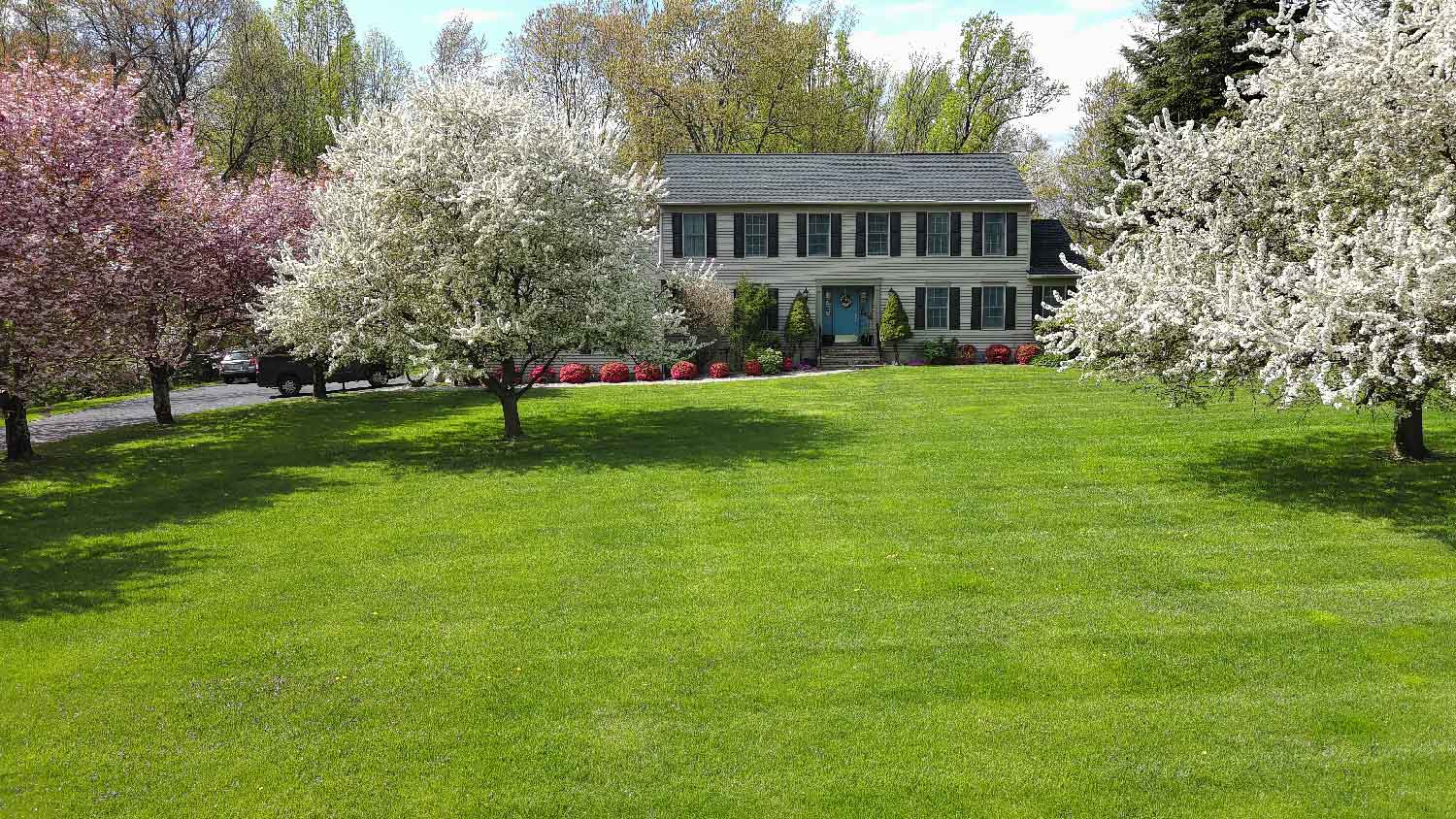Why Is My Yard So Soft? 6 Common Problems and How to Fix Them
When lush becomes overly soft, it’s time to look closer
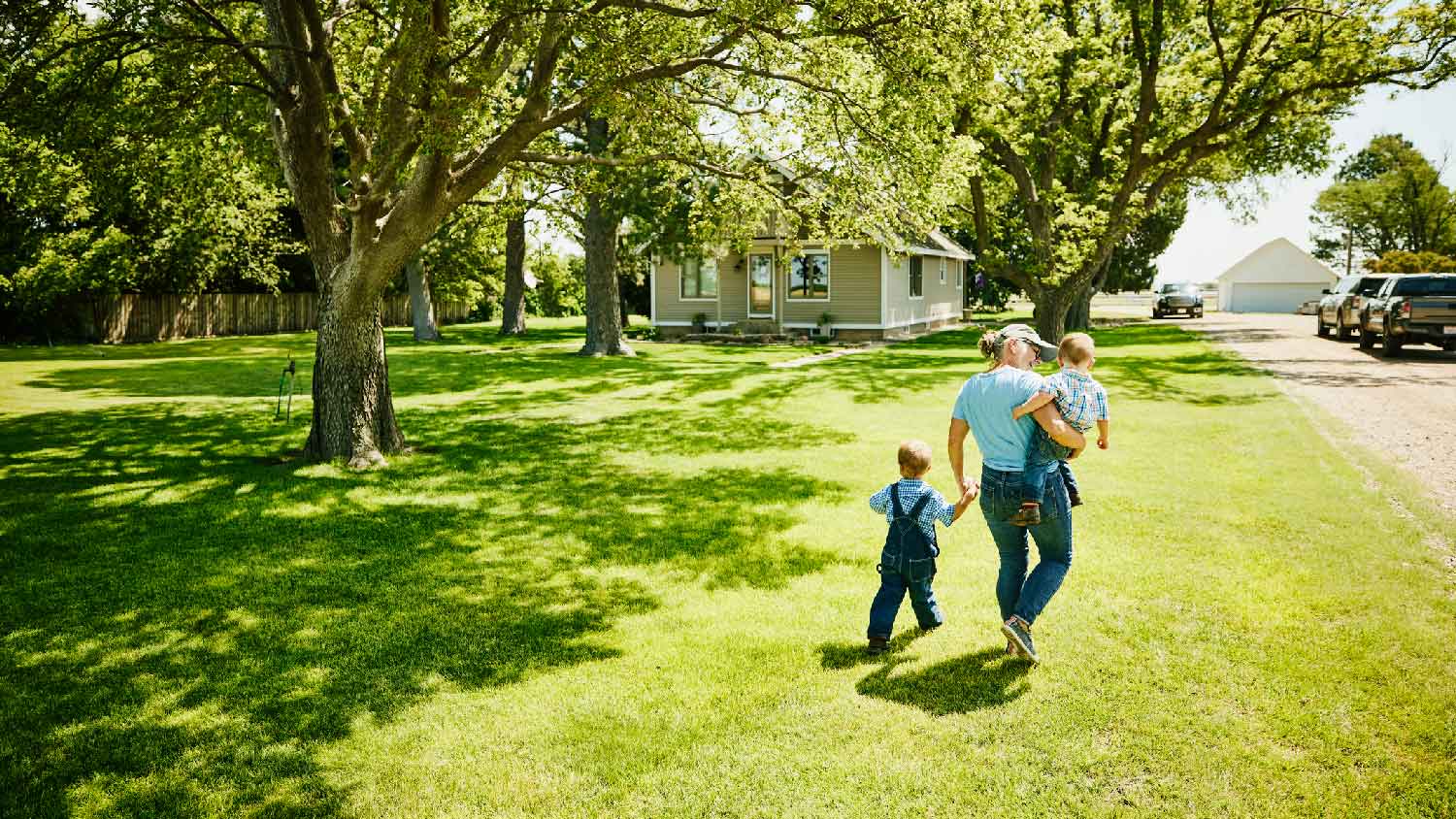

A soft lawn can indicate a serious issue.
Address the problem immediately.
The most common cause of a soft lawn is excess moisture.
Call in a lawn care professional for help.
If you step out on your lawn and immediately experience a sinking feeling—both literally and figuratively—you might ask yourself, “Why is my yard so soft?” Excess moisture in your soil is usually the underlying cause, but there are a few things that can lead to moisture build-up. Use this guide to diagnose the problem and get your yard firmed up again.
1. Poor Drainage
The most common cause of a soft yard is poor drainage. If your soil can’t drain water quickly enough, it will turn to mud just below the grass level and create a soft yard. If you notice that your yard is extra squishy following rainfall or melting snow, this is likely your problem.
The Solution
Lawn aeration is a good first step, as this will penetrate and loosen the soil to help with drainage. If that doesn’t work, you may need to grade your yard to promote drainage or install a French drain system to pull moisture out of the soil in problem areas.
2. Overwatering
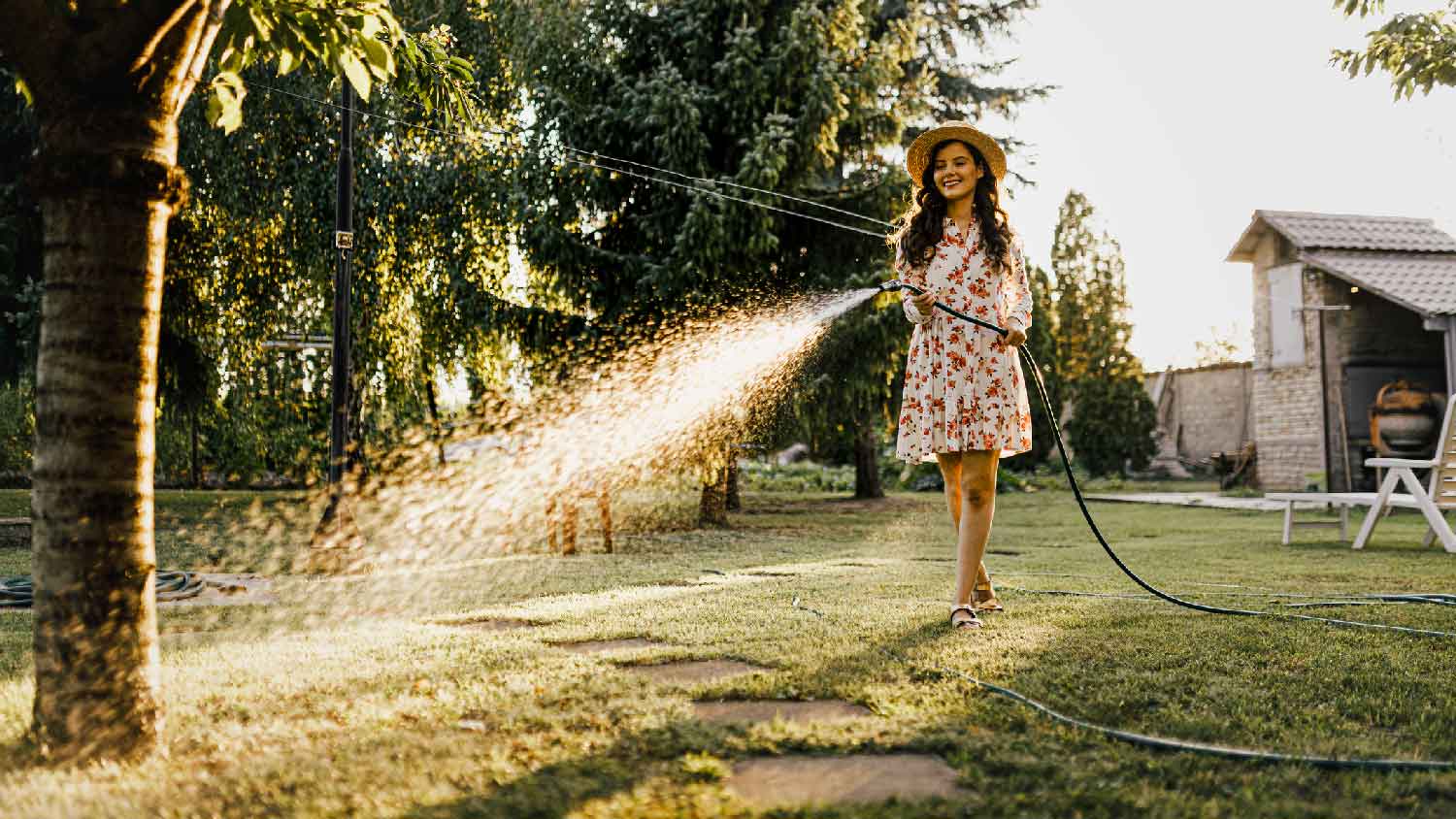
Overwatering is another common cause of a soft yard. Much like rain or snowmelt, water from sprinklers can accumulate under the surface if the soil can’t drain it quickly enough. If you notice that your yard is softest after the sprinklers shut off, this is probably the issue.
The Solution
The solution here is simple: water your yard less. You can change the automatic timers if you have a sprinkler system to run every other day or even every three days to help avoid the problem. You can also upgrade to a sprinkler control system that connects to Wi-Fi and avoids watering if there’s rain in the forecast.
3. Thatch Build-Up
Thatch is a layer of organic material like grass roots, dead grass, and leaves that can easily get matted in your yard. The thatch layer sits just below the layer of grass, so it’s not clearly visible. If you haven’t gotten your yard dethatched in over a year and have never experienced a soft yard in the past, this could be the problem.
The Solution
Hire a local lawn care company to dethatch your yard. They’ll use special equipment to scrape out the dead material, which will improve drainage and can also promote overall grass health.
4. Soil Composition
Certain types of soil with high amounts of clay will drain less readily than sandy or loamy soils. Clay soil compacts more easily, too, which decreases drainage even further. This issue can be hard to diagnose, but if you’re also noticing patches of grass dying off, soil composition and compaction could be causing a soft lawn.
The Solution
Aeration is the best way to loosen the soil and reduce compaction. It’s not realistic to replace the soil in your yard, so scheduling aeration every two or three years is a good long-term solution, too.
5. Underground Leaks
In rarer cases, the abundance of moisture causing the sponginess in your yard could be coming from underground rather than rain, snow, or sprinklers. A water main or sewer line leak could saturate your soil and cause squishiness. If you notice unusually high water bills or unusually green patches of grass, an underground leak could be the culprit.
The Solution
Hire a local plumber to inspect your main water line and scan your yard for water main leaks. The fix may be costly, but since leaks can cause structural damage to your home, it’s worth it.
6. Pests
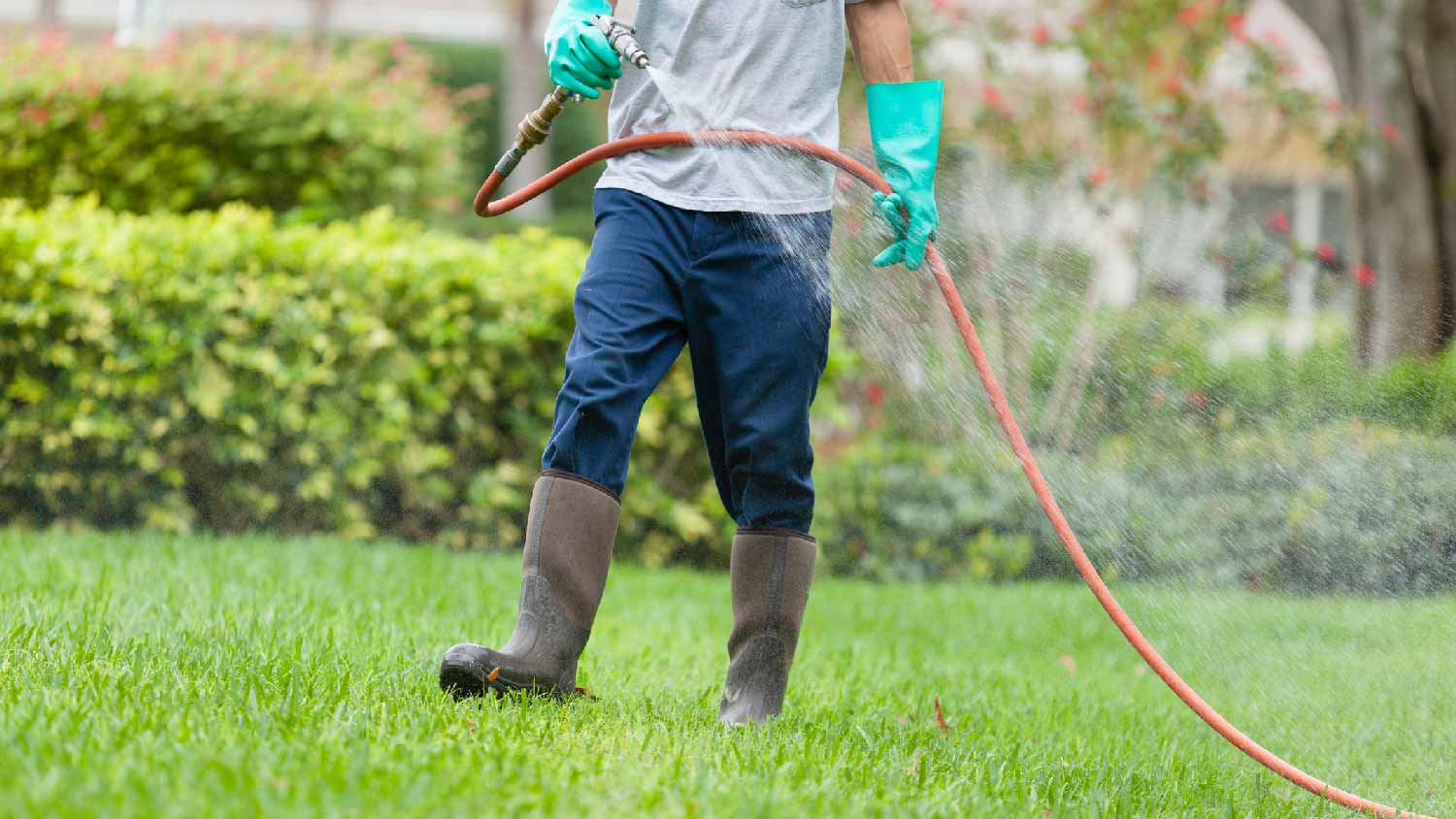
In extreme cases, underground pests could be causing a soft yard. Excessive grub and earthworm activity can deteriorate the soil structure under your grass, leading to softness. If you notice that your yard seems dry but still compresses under foot traffic, this could be the issue.
The Solution
Hire a lawn care company near you to treat your yard for pests.
When to Call a Pro
If you see signs of overwatering and suspect it’s the problem, you can easily adjust your watering schedule to fix the problem. You could also rent a dethatcher to remove thick thatch layers yourself. In all other cases, though, it’s a good idea to hire a professional. A lawn care specialist or plumber will be able to confirm the root cause of the problem and implement a solution to get your yard back to its original condition.
Frequently Asked Questions
A single spot on your lawn that’s soft could indicate a low spot where rain and snowmelt naturally accumulate or an underground leak from a water main, sewer line, or sprinkler line. More severe issues include a leaking or sinking septic tank. Contact a lawn care professional to confirm the source of the issue and implement a fix.
The screwdriver test involves trying to push a screwdriver into your lawn. If it goes in easily, you’re likely overwatering and should cut back. If there’s moderate resistance, you have a good watering schedule and soil composition. If there’s a lot of resistance or you can’t get the screwdriver into the soil, you may need to aerate your lawn to reduce compaction and increase your watering schedule.



